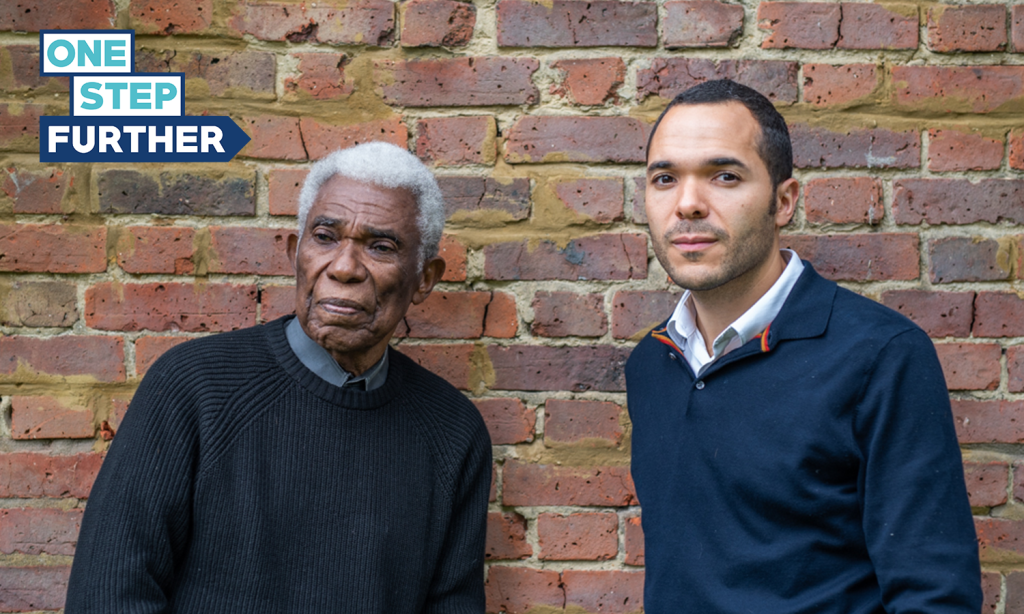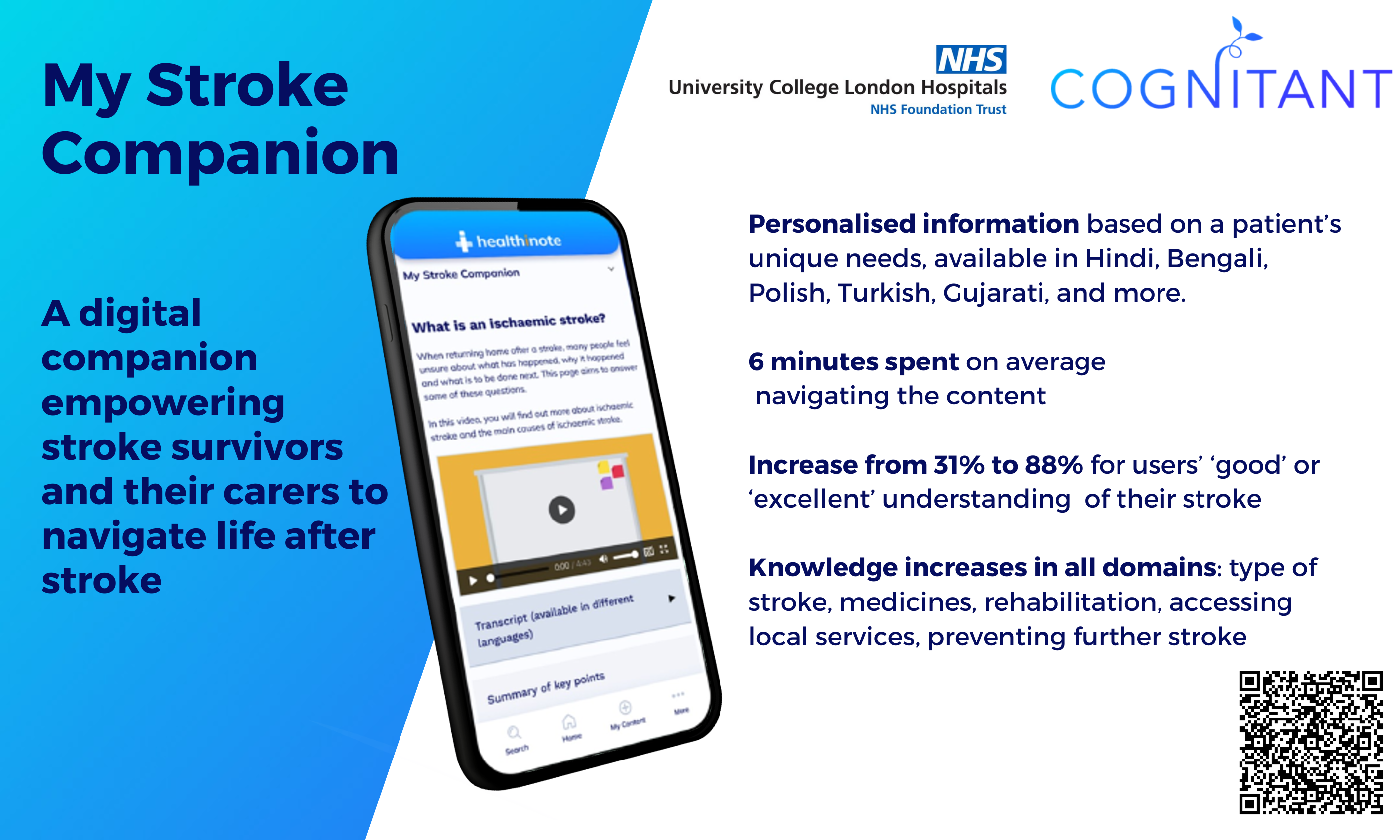Patient Programmes
With grateful thanks to our sponsor
My Stroke Companion is a ground-breaking digital health companion developed by Cognitant in partnership with University College London Hospitals (UCLH) to support stroke survivors and their caregivers. This digital companion offers crucial information about what has happened to them, what investigations are planned, what medication they have been prescribed and what rehabilitation and support services are available for them upon discharge from hospital.
Since its launch, the digital companion has made significant impact, with over 400 patients and carers engaging with the platform. Impressively, 88% of stroke survivors reported a “good” or “excellent” understanding of stroke after using the tool, and 81% found it easy to navigate, demonstrating its effectiveness in empowering patients and enhancing post-stroke care.
Judge’s Comments
“My Stroke Companion” is an impressive project with clear benefit to patients and carers. Not only did Cognitant and UCLH overcome significant challenges to get the pilot scheme up and running, there is a well thought through plan for further expansion. Judges loved how the HCPs can tailor the content easily, minimising irrelevant or misleading information at a time when there is often information overload.
Additionally in discerning that all the stakeholders are helped by giving this really useful support to stroke survivors and their carers, the judges deemed this an overall outstanding entry, which had a true vision and was an undertaking of huge proportions.
Andrew Short, Freelance Creative Director
A diagnosis of a progressive genetic condition can be devastating. It not only affects the individual but also their entire family. This is only made worse when there are limited resources available—with limited representation.
Just a few years ago, this was the stark reality for people diagnosed with hATTR amyloidosis. But we have changed that.
By collaborating closely with diverse individuals from across the patient and clinical communities, we transformed patient support. We created resources that not only answer the common questions, but are also accessible to audiences via the channels best suited to them.



